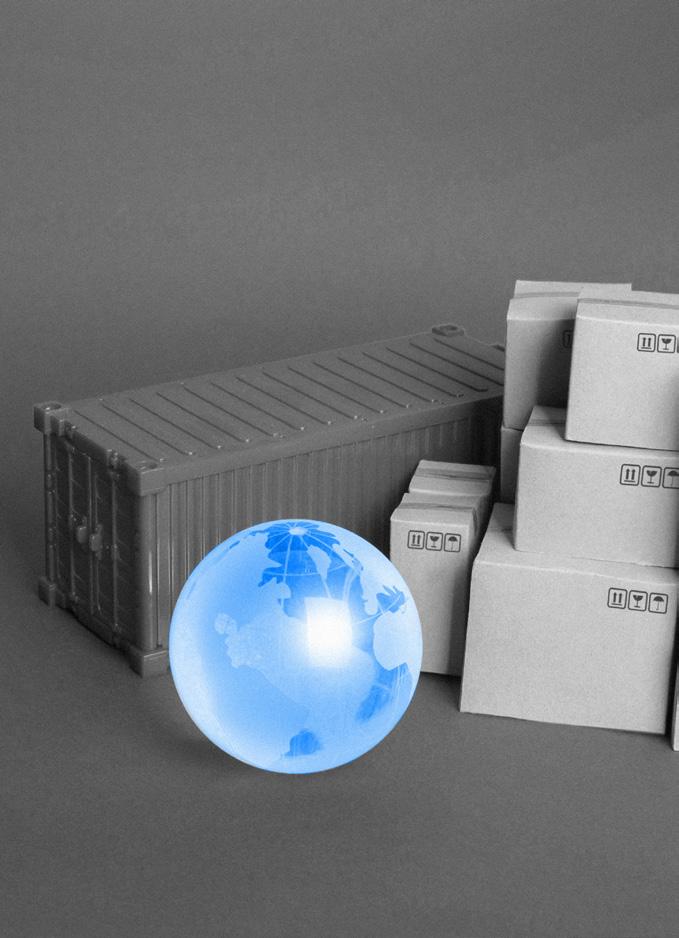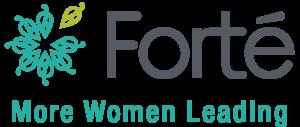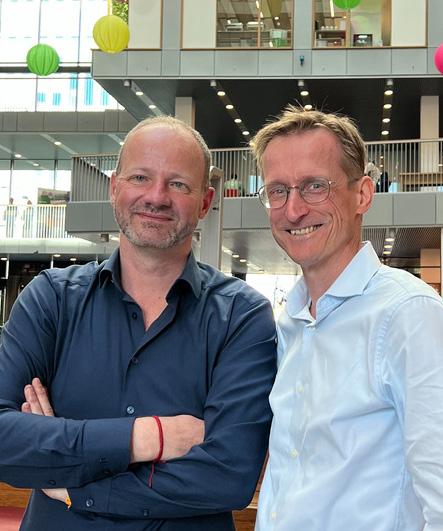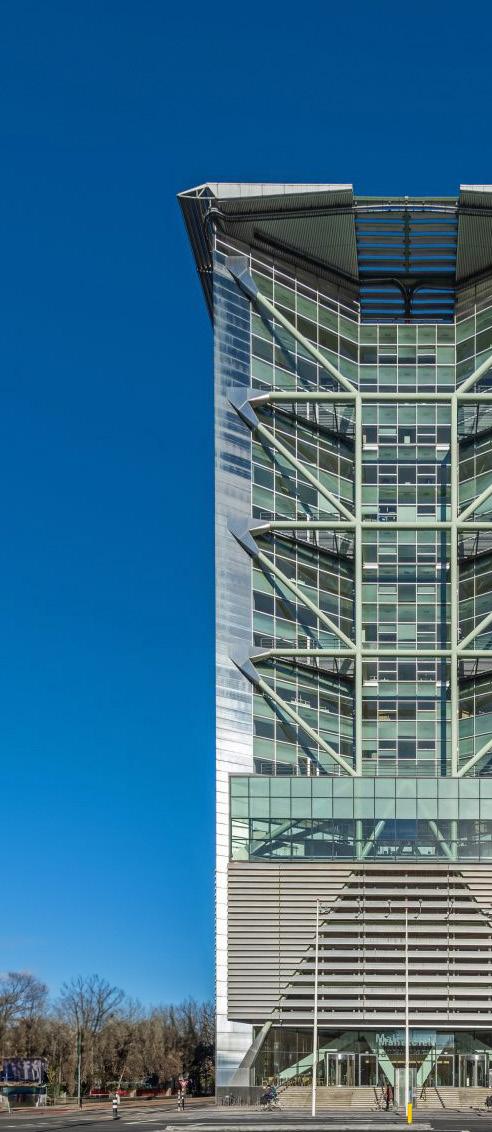




With a fresh wave of tariffs expected to be announced on April 2, businesses once again find themselves bracing for impact. The details may not be final, but the message is already clear: trade is becoming more fragmented, more politicised, and more volatile.
In response, the International Chamber of Commerce (ICC) is doubling down on its core message: sustainable solutions require multilateral cooperation, not escalation. As ICC Secretary General John Denton recently warned, “A tit-for-tat race to the bottom will hurt businesses, workers, and consumers in all affected countries.”
In this issue, we outline practical steps your organisation can take to remain resilient and proactive, from internal scenario planning to joining ICC’s global policy dialogue.
But trade, as we know, doesn’t happen in a vacuum. This month’s issue looks at the forces shaping the deepening geopolitical divide. In our featured interview, Michael Every of Rabobank offers a sobering but essential take on what this shift means. He doesn’t mince words: “These are just warning shots of the kind of tectonic shift that is happening.” It’s definitely a wake-up call.
Meanwhile, with the Incoterms® 2020 marking their fifth anniversary, it’s the perfect moment to ask: are these rules still fit for purpose today? In our upcoming event we’ll explore how to use Incoterms® strategically to manage risk and ensure compliance. (Please note: this event will be held in Dutch.)
On the climate front, the ICC Global Environment & Energy Commission recently convened in Paris. On multiple fronts, ICC is working to ensure businesses are not just reacting to climate pressures but leading the transition. In our summary, you’ll find key takeaways from the March meeting, and a preview of COP30 in Brazil.
On dispute resolution, following our training sessions across Dutch law firms and in-house counsel teams, we’re sharing some FAQs ask about arbitration and practical ways to get more from the ICC Court and Secretariat. Mark your calendar for our three upcoming events: a behind-the-scenes visit to the ICC Court in Paris (26 September), the second edition of our Dispute Resolution Forum in Amsterdam (7 October), and a high-level regional gathering on Geopolitics & Arbitration in Brussels (11 December).
At the latest ICC Tax Commission meeting, members tackled fast-moving developments — from the UN’s new tax
framework negotiations to the complexity of implementing OECD’s Pillar Two. With business concerns around compliance growing, ICC is pushing for simpler, practical solutions and a stronger global voice for business. Expect more updates ahead of FfD4 in Seville this spring.
As part of our business integrity efforts, ICC Netherlands is pleased to deepen its collaboration with Vrije Universiteit Amsterdam — exploring how academic insights can support companies in fostering stronger cultures of integrity.
Finally, our ongoing Week of Integrity series returns with a deeply personal story from the field. This month, we speak to the director of a small construction firm whose workplace harassment case shattered her assumptions about trust, safety, and leadership. The story is raw and nuanced, remindings us that integrity isn’t black or white — and that culture is not something we declare, but something we shape, together.

As always, we welcome your feedback, your input, and your stories. We hope this issue equips you with insights, connections, and clarity to face the challenges ahead, not alone, but as part of a broader community of principled, proactive business leaders.
Got a story or event to share?
Contact us at info@icc.nl

With a new wave of tariffs expected to be unveiled on April 2, global trade is once again entering uncharted waters. While the specifics remain to be seen, one thing is clear: companies operating internationally must prepare for greater complexity and mounting pressure on supply chains, partnerships, and regulatory exposure.
In this environment, ICC is calling on governments to exercise restraint and prioritize multilateral dialogue. As ICC Secretary General John Denton put it, “A tit-for-tat race to the bottom will hurt businesses, workers, and consumers in all affected countries.” Now more than ever, businesses must step forward, not only to protect their own operations, but to help shape the future of global trade.
• Scenario planning: Model potential impacts of new tariffs and export restrictions across key markets, supply chains, and customer segments.
• Compliance readiness: Ensure internal teams are up to date on changing trade classifications and sanctions regimes.
• Establish clear communication guidelines: Strengthen communication and shared contingency plans with international partners.
• Contribute to ICC advocacy: Nominate experts to the ICC Global Trade & Investment Commission and share onthe-ground intelligence.
• Support multinationalism: Use every opportunity to engage your government and public officials on the need for multilateralism.
• Follow geopolitical developments: Stay informed about emerging trade alliances, retaliation measures, and enforcement actionsbut don’t let the news distract you.
• Train: Organize regular briefings for all teams and review the ICC Academy trade certification courses, including modules on tariffs, WTO frameworks, and trade finance.
To help address the structural challenges now facing world trade, ICC has launched a multiphase initiative based around 3 pillars:
• In-depth expert analysis and publication of new guidance papers.
• Targeted government outreach to form a “coalition of the willing.”
• A global campaign to build public and private sector support for modernizing the trading system.
Business leaders worldwide have shared crucial insights with ICC on key trade policy challenges, highlighting the need for predictability in global markets.
Understanding the differences between valueadded taxes (VAT) and tariffs is crucial for informed international trade policy decisions.
The implications of a democracies-only trade pact
New ICC analysis examines the economic implications of proposals to establish a trade system limited to democratic nations, finding such plans would trigger a tariff shock three times larger than the Smoot-Hawley Tariff Act of 1930 that significantly impacted global trade by raising US import duties on a wide range of goods.
Over 80% of global merchandise trade is conducted on MFN terms, non-discriminatory trade practices, highlighting its pivotal role in promoting stability and fairness in international trade.
The International Chamber of Commerce latest article explores what MFN means in practice, how it impacts both exporters and domestic businesses, and why maintaining a rules-based trading system is critical for investment, supply chains and market access.
ICC’s message remains clear and consistent: long-term, sustainable solutions can only be achieved through international cooperation In times of tension, the temptation to act unilaterally may be strong—but tariffs and retaliatory measures risk triggering a downward spiral that amplifies economic harm rather than resolving disputes. Such escalation ultimately affects everyone: businesses, workers, and consumers alike.
The World Trade Organization (WTO) continues to offer the most legitimate and effective venue for resolving disputes and modernizing trade rules. It provides a stable, rules-based framework that ensures fair competition and accountability. Revitalizing this multilateral system must remain a top priority for governments and the business community. At ICC, we believe business has a critical role to play, not just in calling for stability, but in modelling it.
As we look ahead to 2025, businesses cannot afford to be reactive. Now is the time to prepare, partner, and advocate—not only for your company or industry, but for the health of the global trading system itself. The only way forward is together.
• Join the monthly one-hour virtual meetings of the ICC Global Trade & Investment Commission for timely insights.
• WTO–ICC Africa Trade Day – 10 April
• Business Delegation to WTO – 12–13 June
• B20 Trade Ministers Meeting – TBD
• COP CEO Roundtable – TBD
• Business Forum at WTO MC14 – TBD


“These are just warning shots of the kind of tectonic shift that is happening”

For our fourth conversation about Geopolitics in 2025, we spoke to Michael Every, Global Strategist in Rabobank’s Global Economics and Markets Division.
As you will read, he doesn’t beat around the bush, drawing on his 25+ years of experience working in “cross-asset, cross-geography, crossdisciplinary” matters of strategy and market analysis to give straight answers to our straight questions.
How does the current state of global geopolitics affect international trade?
To answer most concisely: it threatens to be as large a systemic shock as what we experienced at the end of the cold war, but in reverse.
How can internationally operating companies react to the present situation?
There are just a few choices. The first is to ignore it: don’t admit the world is changing. I can assure you that many CEOs fall squarely into the bracket of ‘don’t take any risks, don’t rock any boats, and don’t offend the shareholders’. Maybe they are thinking that everything will be as right as rain in six months. Good luck with that. The second more consequential option is to change: to try and read what’s actually happening and then act on that. However, available actions are largely a binary choice, or involve a very limited set of options which can contradict sharply with each other. To be blunt: for most companies, things are not as good as they were before.
Surely it can’t all be bad. Someone must be gaining from this increased fragmentation and protectionism?
The most obvious winner of the last two and a half months is European defence stocks which have gone through the roof. However, for various reasons, I don’t know how long that’s actually sustainable. In a de-globalising or re-globalising world most of the winners are now losers. The global

economy risks becoming a bifurcated trading system with protectionist blocs with fractured payment systems; the euro used by one group of countries, the dollar by another, and Bitcoin used somewhere else, etc. Just because no-one has lived through this recently doesn’t mean it hasn’t happened before. The 1930s is a past example. And we have seen snippets of this recently. How many people lost money on Russia after they invaded Ukraine? How many people are suddenly freaked out about owning American assets? These are just warning shots of the kind of tectonic shift that is happening.
How does the current state of global geopolitics affect international trade?
It means something: in the short term, obviously, they’re still powerful. But once you start getting back to the nuts and bolts of geopolitics and geoeconomics – to where we are now – business is told to do what national security wants it to do. And, to be clear, America didn’t start this; this was happening before Trump. America is actually echoing things that happened earlier in other countries. It’s just that we didn’t recognise it. To be blunt, the emerging thinkers who are setting the pace in the White House and many other economies see the concept of the International Chamber of Commerce as anathema. I don’t see any argument that the International or any Chamber of Commerce can bring to the White House to make them pivot. They only want to hear: How can we help you make this transition happen faster? What can we do to make this work better?
Can the banking community play a role in bringing stability?
No. Because what we’re seeing unfold most graphically in America is a shift from economic policy, where businesses and banks have a say, to economic statecraft, where they largely don’t. Such statecraft concerns itself in the grand strategy of national security rather than rising stocks. In that environment, banks and businesses will be first politely, and then more and more forcibly, be told ‘here’s how you can help. Here’s what we want you to be doing’.

On 27 March, business leaders and policy experts from around the world gathered in Paris and online for the ICC Global Environment & Energy Commission meeting, navigating the turbulence of a shifting global climate landscape.
With geopolitical uncertainty rising and regulatory clarity lagging, ICC reaffirmed its commitment to ensuring the private sector remains an engine for sustainable transformation.
The world is entering a new phase of climate and trade uncertainty, ICC is committed to ensuring business can navigate and lead through this transition.
The meeting opened with a sobering macroeconomic outlook. While global growth is expected to remain stable in 2025, the real concern lies in “pandemic-level uncertainty in trade and investment”. Climate ambition is showing signs of retreat in several jurisdictions, including the US, Canada, and parts of Europe. Subsidies are being scaled back, and net-zero targets delayed.
Despite this, optimism remains. China, for instance, continues to lead the global energy transition, with over 50% of global low-carbon investment now originating there. “Clean energy investment has grown by 50% in the past two years. But global efforts still fall short of what’s needed to meet the Paris Agreement.”
Under the banner of “Solutions at Scale”, the Commission laid out a focused work plan across three priority pillars:
Accelerate Climate Action: ICC will take an active role leading into COP30 in Brazil. Workstreams include support for high-integrity carbon markets under Article 6 and expanding private sector contributions to climate finance and adaptation.
Promote Sustainable Trade: ICC continues to champion the Principles for Sustainable Trade, aiming to embed climate policy within global trade frameworks and remove unnecessary regulatory fragmentation.
As negotiations continue on the global plastics treaty, ICC will advocate for innovationdriven, inclusive, and implementable solutions.
Working groups reported major progress and upcoming milestones:
Plastics Treaty:
ICC will present business perspectives at INC-5.2 in Geneva this August, highlighting the need for “a circular economy based on innovation and inclusiveness.”
Carbon Markets:
A new Article 6 explainer is underway, with ICC continuing to partner with IFC, Gold Standard, and others to promote market integrity.
Biodiversity Framework:
One of the pressing concerns raised during the Commission meeting was the lack of clarity surrounding the newly established Cali Fund, which is intended to help finance the implementation of the Kunming-Montreal Global Biodiversity Framework (GBF). ICC will continue to advocate for greater clarity ahead of the next COP to the Convention on Biological Diversity (CBD), expected later this year.
As the international community shifts its focus toward COP30 in Belém, Brazil, ICC is positioning itself to play a pivotal role in elevating the voice of business in climate negotiations. Building on the success of its engagement at past COPs, ICC will once again create space for meaningful business dialogue inside the Blue Zone, acting as the formal focal point for business and industry in the UNFCCC process.
One of the highlights will be the return of the ICC COP Ship—a floating platform for high-level roundtables, bilateral exchanges, and civil society dialogues. This unique initiative, docked near the COP venue, symbolises ICC’s mission: to bridge public-private divides and unlock bold action through cooperation.
“The ship is more than a venue: it’s a signal that business is not just at the table, but committed to steering climate ambition forward.”
ICC’s strategic messaging heading into COP30 will centre around three pillars:
at Scale: ICC will spotlight solutions to close the persistent climate finance gap, calling for regulatory coherence and market-based mechanisms to unlock $1.3 trillion annually in private investment for mitigation and adaptation — particularly in emerging markets.
Elevating Adaptation:
While much of the global conversation remains focused on emissions reduction, ICC is pushing adaptation and resilience to the forefront.
Business has a critical role to play in strengthening value chains, infrastructure, and local capacities to withstand climate shocks.
Shaping Coherent TradeClimate Policy: ICC will advocate for coordinated, science-based approaches to carbon pricing, traderelated climate measures, and standards, emphasising that fragmented regulation undermines both business certainty and climate ambition.
“We want to help move from high-level pledges to real economy delivery, with a focus on implementation, scalability and inclusiveness.”
ICC will also lead several official side events, including on climate-smart trade, SME access to finance, and the operationalisation of Article 6 carbon markets. With Brazil’s presidency emphasising equity and environmental justice, ICC aims to ensure the private sector’s contributions are recognised not only as essential, but as agents of trust, innovation, and global solidarity.
“We are entering COP30 with a clear mandate: to be practical, ambitious, and united across business sectors.”
June 2025 |
Hague | 14:00 – 17:00
Please note: this event will be held in Dutch

As Incoterms® 2020 marks its five-year anniversary, the question arises: are these terms still fit for today’s shifting trade landscape? From geopolitical tensions to digitalisation and export controls, the environment in which goods are bought and shipped has changed significantly. Join us for an afternoon of practical insight and expert discussion on how to use Incoterms® strategically — not just as legal terms, but as tools to navigate uncertainty.

Participation Fee
• €125 for non-members
• €80 for ICC members
Sneak preview of the programme | Full programme to follow soon
Opening by Robert de Bruin (Van Oord): Trade in a more complex global context
Keynote 1 – Incoterms® in Action: What We’ve Learned Since 2020 | Marc van Maanen (Confirmed)
• How Incoterms® interact with contracts, transport, insurance and payment terms
• The impact of digitalisation and what to expect from Incoterms® 2030
• Practical pitfalls and questions from the field
Keynote 2 – Common Mistakes and Hidden Risks in Trade Transactions | Ed Jongenelen (Confirmed)
• Misunderstandings around risk allocation and clause interpretation
• The danger of the “we’ve always done it this way” approach
• Sanctions, export controls, and documentation risks –what to look out for
Interactive Panel Discussion – Trade in an Uncertain World: Navigating Forward | Moderated by Ed Jongenelen
• How to deal with growing trade barriers and geopolitical risk
• The role of Incoterms® in compliance and contract clarity
• The slow pace of digitalisation in trade – where are the bottlenecks?
2 April | 14:00 - 17:00 Culture Change for ESG Goals
Assessing behaviour and culture in relation to ESG, and an evidence based approach to changing behaviour and culture to enhance ESG compliance.
Our Trainers:
Juliëtte van Doorn
Wieke Scholten
8 May | 14:00 - 17:00
For ESG to truly succeed, it must be integrated not only across all business functions but also beyond the boundaries of the organization. This session explores how to break down silos internally and externally.
Our Trainers: Merei Wagenaar
Mireille van der Meij
20 May | 14:00 - 17:00
Developing leadership strategies that align ESG goals with corporate strategies
Inspire participants to lead sustainability transitions that align ESG goals with organizational strategies by focusing on their own leadership.
Our Trainer: Mark de Lat
24 June | 14:00 -17:00
Accessing sustainable funding and meeting stakeholder expectations are critical for organizations striving to achieve their ESG goals. This session provides insights into navigating green finance regulations, leveraging ESG-aligned investment opportunities, and meeting the growing demands of investors and shareholders.
Our Trainer: Maarten Biermans



ICC Dispute Resolution Services recently delivered a specialized training program across major Dutch companies and law firms. Ulrich Kopetzki, Acting Director for Europe and Central Asia, shared insights into advanced dispute resolution strategies over two intensive days of sessions. The program brought together over 40 experienced legal and business professionals interested in expanding their dispute resolution toolkit. Through collaborative workshops and discussions, we explored nuanced approaches to complex commercial disagreements and exchanged perspectives on optimizing dispute management processes. This initiative supports our ongoing dialogue with the Dutch business community and highlights the evolving landscape of international dispute resolution.
How can we draft more effective dispute resolution clauses?
Arbitration offers flexibility to tailor proceedings to your specific needs. Starting with the ICC model clause, consider key strategic choices like seat of arbitration, expedited procedures, confidentiality requirements, and multi-tiered dispute resolution steps. Sometimes leaving certain issues undetermined maintains valuable flexibility. These customizations create a dispute resolution process aligned with your business relationship and industry needs, potentially saving significant time and costs if a dispute arises.
What are the advantages of ICC arbitration specifically?
ICC arbitration stands out for its global reach (operating in 140+ countries and multiple languages), institutional neutrality, and exceptional quality control through the Court’s award scrutiny process. Its century of experience, client-centric case management, and innovative rules create a level playing field for parties worldwide. This combination makes ICC particularly valuable for complex cross-border disputes requiring efficient, predictable, and enforceable outcomes.
How can parties make best use of the ICC Court and Secretariat in an arbitration?
The ICC Court and Secretariat offer comprehensive support beyond what’s explicitly stated in the Rules. Some valuable ways to leverage the Court and Secretariat include:
1. Seeking arbitrator selection assistance - When parties need help identifying potential arbitrators, the Secretariat or ICC Court can provide lists of candidates, initiate communication with potential arbitrators about their availability, or establish a list procedure where parties rank their preferences.
2. Requesting specific arbitrator criteriaParties can jointly agree on criteria they want the ICC Court to consider when appointing an arbitrator, such as nationality, language proficiency, or particular industry expertise.
3. Understanding ICC Court decisionsAny party can request that the Court communicate its reasoning for decisions on jurisdiction, consolidation, arbitrator challenges, or replacements, enhancing transparency in the process.
4. Using the Secretariat as an intermediary - The Secretariat can facilitate communication between parties and the tribunal, especially for sensitive issues like concerns about fees, delays, or case management challenges.
5. Utilizing escrow services - Beyond holding the advance on costs, the Secretariat can provide escrow services for VAT payments, expert fees, or security for costs.
6. Document handling and confidentiality - The Secretariat can serve as a neutral depository for confidential documents, including sealed settlement offers, and ensure they’re only released at appropriate times.
7. Getting logistical support - Leverage the ICC Case Connect platform for document sharing, get help with hearing arrangements through the ICC Hearing Centre, or obtain assistance with visa applications for participants.
8. Requesting advance notice of awardsParties can arrange to receive alerts when an award notification is imminent, or request specific timing for award delivery.
9. Post-award assistance - The Secretariat continues to provide support after the award is issued, including certified copies of documents, notarization, and letters reminding parties of compliance obligations.
The key is to communicate proactively with your case management team about specific needs or challenges as they arise throughout the arbitration process. Their experience and expertise can help you navigate complexities and find creative solutions to procedural issues.
1. Early Assessment Is Critical: Evaluating dispute resolution options early in a disagreement often leads to more efficient resolutions and better business outcomes.
2. Tailor Your Approach: Different disputes require different methods. Companies benefit from having various tools in their dispute resolution toolkit, including negotiation, mediation, and arbitration.
3. Proactive Communication with the Secretariat: Parties that engage regularly with their ICC case management team throughout proceedings can access valuable support services that might otherwise go unutilized.
4. Utilizing Expedited Proceedings: Companies can significantly control time and costs by opting into the ICC’s Expedited Procedure Provisions, which streamline the arbitration process through simplified procedures, shortened timelines, and typically a sole arbitrator, making dispute resolution more efficient for appropriate cases.
Due to the positive response and continued interest, we will be organizing additional dispute resolution training sessions in the future. These sessions will focus on both fundamentals for newer professionals and advanced topics for experienced practitioners.







A special visit to the ICC International Court of Arbitration, including a meeting with the Secretariat and a joint lunch with another national committee, offers a unique opportunity to experience how international disputes are handled at the core of the institution.
The complete programme will be shared shortly.
Following the success of last year’s inaugural edition hosted by De Brauw, the second edition—hosted this time by AO Shearman—will again be co-created with in-house counsel. The Forum will focus on strategic handling of cross-border contracting and disputes.
We’re pleased to announce that Alexander Fessas, Secretary General of the ICC International Court of Arbitration, has already confirmed his participation.
Expect lively debates, impactful keynotes, and valuable networking.
Arbitration Day: 11 December | Bruxelles Geopolitics & Arbitration
This high-level gathering will close the year by bringing together the ICC arbitration community from the Netherlands, Belgium, France, and Germany. With a special update from the ICC Court, the event will explore how shifting geopolitical dynamics are influencing arbitration practice and strategy across Europe and beyond.

UN-led tax reforms, digital economy protocols, and OECD challenges headline a pivotal Commission meeting. The ICC Taxation Commission’s March 2025 meeting convened at a critical moment for global tax policy. Against the backdrop of growing geopolitical instability and fragmentation in international trade, ICC members gathered to address urgent developments in global taxation frameworks, digital economy protocols, and regional policy shifts.
Opening the session, Andrew Wilson (ICC Vice-Secretary General) and Valerie Picard (ICC Head of Trade) addressed a key concern: the erosion of multilateralism driven by unilateral trade measures, particularly from the U.S. While the core trade stance hasn’t dramatically changed, the implementation is now more aggressive and less internally contested. This “louder, more coordinated” approach risks hardening global divides and undermining established multilateral institutions. In response, the ICC is stepping up its advocacy efforts, producing foundational papers—such as on VAT—that provide clarity and are being actively used by member states in their policy dialogues.
Michael Braun (Germany UN Mission) shared an update on the UN process to establish a framework convention for international tax cooperation. Spurred by growing calls from developing nations, the convention aims to rebalance rule-making power and build a more inclusive and equitable tax framework. The process now moves into a drafting phase following the adoption of the Terms of Reference in 2024, which laid out three pillars: a framework convention, a protocol on digital services taxation, and another on dispute prevention. The structure includes three workstreams, co-led by representatives from the Global South. While the Terms of Reference do not formally embed stakeholder engagement, ICC is pushing for structured business input, emphasizing that private sector expertise is crucial to ensuring practical, implementable rules.
In parallel, the OECD’s Pillar Two implementation sparked intense debate. Business representatives flagged compliance costs, especially for low-risk jurisdictions, and questioned the added value of full model rules in such cases. ICC presented a proposal for permanent safe harbors based on country-level data and simplified reporting, aimed at lowering compliance costs while maintaining tax integrity. Although the idea gained some support, concerns about erosion of tax bases persist among certain jurisdictions. ICC called for urgent high-level government engagement to maintain momentum and promote a practical, stable system.

Regional sessions showcased both alignment and divergence. In the Asia-Pacific, the Belt and Road Initiative tax platform highlighted progress in digitalization and capacity building. Meanwhile, the EU is focusing on simplification and competitiveness, with the European Commission reviewing directives for redundancy in light of Pillar Two’s global uptake. Africa, represented by Thulani Shongwe (ATAF), spotlighted VAT collection challenges and a growing push for regional cohesion on core tax policy positions, backed by the African Union.
The U.S. position remains a wildcard. With the administration opposing some OECD rules and broader concerns about extraterritoriality, participants expressed concern over the stability of the current multilateral tax order.
As the UN tax convention process advances, the spotlight is shifting from structure to substance. Key issues include the scope of Article 12 on digital services, the potential for simplified allocation systems, and whether the dispute protocol will embrace binding arbitration or remain limited to prevention mechanisms. The ICC emphasized the need for clarity to avoid conflicting obligations and ensure smooth integration with existing treaties.
The Commission’s working groups reported on ongoing initiatives including:
• Foreign subsidy regulations
• VAT treatment for cross-border telework
• Sustainability-linked tax policies
• The interaction between investment treaties and tax rules
Conference Room Papers for the 30th Session of the Committee of Experts
All underscored the same themes: simplicity, coherence, and coordination. Fragmented rules risk undermining both taxpayer certainty and government revenue collection. Looking ahead, ICC will play a key role in the UN’s Financing for Development Forum (FfD4) in Seville, where business engagement will address the impact of tax on development, investment, and sustainability. A new economic impact study on digital service taxation is also in the works, and ICC continues to push for inclusive dialogue as UN protocols are developed.
“The global tax landscape is being redefined,” one participant noted, “and ICC must be both a stabilizer and a shaper of that future.”
The WISE program equips women with the skills, insights and network to excel in leadership roles and board positions, and to make a lasting impact. Through 15 interactive modules, participants gain practical tools to navigate governance, sustainability, and entrepreneurial challenges.
Who Should Join?
• Women aspiring to leadership and entrepreneurial roles looking to build the skills and confidence to make a lasting impact.
• Professionals in senior positions who wish to expand their knowledge and competencies in governance, sustainability, and decision-making to excel further in their roles.


I started with dedicated pioneers: we broke the glass-ceiling by creating equality-laws, thus paving the road for female access to top decisionmaking roles. This was followed by women who had made it all (industrialists, investors, managers),who decided to mentor female talents in order to help them overcome the obstacles to the top.
And now it is the turn of WISE, offering a program aimed at empowering female talent to excel in leadership.
So: seize the opportunity to make dreams become true!”
Viviane Reding, former First Vice President European Commission has served as an elected member of national and European Parliaments for 25 years.
She was appointed as member of the European Commission for three mandates. First responsible for culture and education, then for telecoms and technological research and finally -as First VicePresident of the Commission- for justice and fundamental rights. In this role, she was the driving force behind the initiative to apply a 40% Gender Diversity Quota for all publicly listed companies, which ultimately led to the EU law on gender balance on corporate boards.
Today she sits on advisory-boards and on company boards of international companies, operating mainly in the field of digitalisation and technology. She is also board member of Foundations engaging in geopolitics, societal and legal affairs. She has been nominated “ambassador” for the development of the Capital Markets Union by the European Banking Federation. She is VicePresident of the executive board of the “World Law Foundation”.
Key Highlights


Comprehensive leadership training Real-world mentorship opportunities A global network of changemakers
Program Details
Duration:
15 modules –start 8 May 2025
Location:
ICC Netherlands, The Hague (in-person and online)
Cost*:
ICC Members: €2400
Non-Members: €3000
* Includes materials, contribution for inclusive participation, and networking dinner



We are pleased to announce the start of a new collaboration. From now on, ICC NL will be working closely with the Compliance & Integrity Management programme of Vrije Universiteit Amsterdam (VU) to broaden stakeholder engagement and share knowledge on several key subjects. We spoke to Tom Loonen and Jacco Wielhouwer to find out more. Tom is a professor in Financial Law and Integrity at the VU. He is responsible for the educational programmes focusing on Compliance and Integrity Management and Financial Economic Crime. Jacco is a professor at the VU’s School of Business and Economics and the Academic Director of the Executive Master of Compliance and Integrity Management.
How did you come into contact with ICC NL?
Tom: We knew, of course, about the Week of Integrity that ICC NL organises. The content of this week is very important for the VU, especially in the context of our Executive Master of Compliance and Integrity Management programme. This gave us the idea to work closer together.
Jacco: If you look at the goals of ICC NL – they focus a great deal on integrity, fighting corruption, compliance and ESG. These subjects are very close to the goals of our education. Moreover, we regularly carry out scientific research together with companies; this yields results that are both relevant and practical to companies.
Can you give some examples of your research at the VU?
Jacco: To name just a few subjects... We look at international tax planning: the use of Incoterms by business units to shift costs between countries to influence taxes. Another example is where we look at how illegal or unethical behaviour develops and grows within organisations. This is very relevant in the fight against corruption. A third example is our research on how certain AI tools and processes can lead to discrimination.
Why is this research relevant to the business community?
Tom: What is interesting for ICC members is what we see very often; this is that regulators issue guidelines on a lot of legal topics. And instead of treating these purely as guidelines, many corporates deal with these more as ‘pseudo laws’ and stop thinking critically and just automatically tick the boxes of the guidelines. I would say our research is relevant for ICC members because it can help them think critically in order to be more effective when it comes to following

regulations. Our research and training programmes based on up-to-date academic insights can guide and steer organisations towards good, efficient and effective conduct instead of just ‘ticking the boxes’.
How do you see ICC NL and the VU helping each other?
Tom: We really differentiate ourselves by taking a scientific approach to our training. To that end, we can give ICC NL access to interesting, relevant and accessible scientific material. And ICC has interesting access for us to the international business community which we would love to be in contact with for research or to welcome in our executive education. We are trying to link these two strong labels to help each other in a positive way.
What’s the next step?
Jacco: We are going to start pragmatically – seeing where we can help each other. ICC NL is quite small, but it has a big reach. The Netherlands also has a very important position in international trade and taxation. We hope to reach international companies with our programme. And on the other hand, we hope that we can help ICC NL by providing scientific insights to the companies and possibly in their global commissions, whether that’s on tax, integrity or compliance.
Want to find out more about the educational programmes for professionals in the area of compliance and integrity management at the Vrije Universiteit Amsterdam? Here are some useful links.
• If you are interested in the Executive Master of Compliance and Integrity Management, or specific trainings on Organizational Culture & Behavioural Risk, Enterprise Risk & Compliance Management, Data, Evidence & Compliance, Regulatory Impact & Organizational Response, see Executive Master Compliance & Integrity Management School of Business and Economics for Professionals - Vrije Universiteit Amsterdam
• Sign up for an information session. Onsite on 15 May, online on 20 May. Open Evening - Vrije Universiteit Amsterdam
• Information about the training to become a financial economic crime expert: https://vu.nl/en/ education/professionals/courses-programmes/fec-risk-expert/overview
• Feel free to contact us - compliance.sbe@vu.nl

On the sidelines of the OECD -OCDE Anti-Corruption & Integrity Forum on March 24 in Paris, the ICC Global Commission on Business Integrity connected government and business leaders in encourage strong ethical standards that drive trust, investment, and strong-success for all.
Key Takeaways
• Companies need to sharpen their capacity to detect and assess geopolitical dynamics to do global business.
• Harnessing trade facilitation to bolster integrity at border crossings. There are key risks at borders. Public and private partnerships are recommended to mitigate the risks.
• Tools to drive integrity through contracts-update of ICC Anti-Corruption Clause.
• ICC Guidance on Responsible Business for Challenging Contexts is an essential tool to support companies in anticipating crisis situations
• Stronger together. Businesses and governments unite to drive integrity forward.
The OECD Forum on Wednesday 26th started after the opening remarks by Mathias Cormann, Secretary-General, OECD, with launching the global dialogue; insights form leaders. The OECD forum was attended by representatives of the Public and Private sector, Universities and Civil Society.
Key Topics
• Galvanising the private sector for integrity: from policy to practice. Concrete solutions emerging from public-private cooperation such as peer-to-peer learning and the use of technology for integrity were topic of conversation.
• Tackling the demand side: Innovative approaches to combat foreign solicitation. Bribery solicitation remains a pervasive challenge in global markets, undermining fair competition and public trust. The 2021OECDAnti-Bribery Recommendation introduced new provisions to address bribery solicitation, to move a step forward. Participants discussed how to enhance cross-border collaboration and enforcement can help disrupt solicitation schemes while fostering greater accountability and fairness in international business.
The proactive role of companies in resisting solicitation, strengthening compliance programmes, and reporting corrupt practices were also highlighted. Tackling both the demand and supply sides of bribery is crucial to building a balance and effective approach, ensuring systemic change and promoting integrity in global markets.

• Harnessing cutting-edge technologies and collaboration for a holistic fight against corruption. Cutting-edge technologies – such as data analytics, digital forensics, and artificial intelligenceare driving transformation in enforcement, compliance and oversight efforts. The collaboration between enforcements authorities , the private sector, and civil society, multistakeholder approaches and data-sharing framework, can strengthen the global response to corruption.
• Addressing de-risking and illicit financial flows to unlock sustainable development financing. Panellists examined how cooperation, public-private partnerships, and strong political commitments can help mitigate de-risking and mobilise finance for sustainable development.
• On Thursday March 27th focused a session on the OECD Public Integrity Indicators (Plls): From evidence to reform.
The panellists, including Gonzalo Guzman, Chair of the ICC Global Commission on Business Integrity, shared insights on how the Plls can drive action, build resilience to risks, and support innovation. The Plls can help to a structured approach.
The session also awarded the winners of the OECD Anti-Corruption Research Challenge, researchers who used the OECD Public Integrity Indicators to propose novel insights for anticorruption policies across OECD member and non-member countries. The winners didn’t really find significant results referring to the indicators. However transparency is quite important. The mentioned the Netherlands as one of the countries which can set more goals.
• Greening with integrity: Tackling corruption in the green transition.
The green transition offers immense opportunities for sustainable development but also presents significant corruption risks that could undermine its potential. How we can make sure that the green transition is with integrity. A panellist from the World Bank stated that corruption is everywhere. Insights were shared into how anti-corruption measures can strengthen trust and transparency, ensuring that the race toward a greener future remains both sustainable and equitable. Make the data available, use a multistakeholder approach and invest in transparency to make the difference. Not only the technical solutions are important, but also the political will. A challenge is how to show that a fair green transition is not slower, will cost no more.
• Addressing strategic corruption: How to leverage the anti-corruption toolbox.
• Bridging the data gap: Leveraging technology to strengthen the fight against corruption
In addition there were a lot of side events during the conference and the rest of the week.

“I Thought It Couldn’t Happen Here”
In conversation with a regional agency director in the construction sector, two years after a workplace harassment incident challenged her assumptions about trust, leadership and vulnerability in a tight-knit company.
This article, challenging the idea that integrity is ever black and white, is part of ICC Netherlands’ monthly series leading up to the Week of Integrity 2025, where we spotlight real-world experiences and dilemmas at the intersection of culture and integrity.
“We had built a culture together”
Can you tell us a bit about your company and your role?
We are a small public works company based in a town in southern France, with about thirty employees. I’m the agency director and have been with the company for more than twelve years.
How would you have described the culture of your company before the incident?
The company had gone through tough times before — high employee turnover, lack of shared values — but in recent years we had worked hard to build a more cohesive environment. We brought in an external coach, developed a sense of collective identity, and shaped a family-like atmosphere. We weren’t just colleagues; we’d grown together. That’s why what happened was such a shock.
“The atmosphere was heavy — something had happened”
How did you first learn about the incident?
It was right after the Christmas break. Typically, our administrative team returns a bit earlier than the field staff, so it was a quiet Monday. We all had lunch together, as we usually do — but I felt something was off. There was a heavy, almost oppressive atmosphere. The next day, our accountant came to see me and told me she was the victim of harassment.

What was your first reaction?
I was deeply shaken — on several levels. First, I had absolutely no idea it had been going on, and apparently it had been happening for months. I always thought my team knew they could talk to me. It was hard to accept that something so serious had happened right under my nose and no one had come forward. Second, the person accused of harassment was someone I trusted completely. He had been with the company for 15 years — one of the pillars of the business. He was someone I worked with daily, someone who had even driven my daughter home when she did a summer internship with us.
“No one told me and that was devastating”
You mentioned no one came forward. Why do you think that was?
That’s something I’ve reflected on a lot. Two colleagues were aware of the situation, including our retired accountant, who’s still someone I hold in high regard, and a trusted site manager. They knew, but they didn’t tell me. The victim had convinced them that she would handle it on her own. She didn’t want any trouble. She was still in her probationary period at the time and probably felt vulnerable. The accused, on the other hand, was seen as irreplaceable; a highly skilled, longstanding team member. In the end, the two colleagues who stayed silent suffered enormously. It was a form of torture for them to hold it in. They felt they had failed to act. And I… I felt betrayed and deeply questioned my leadership. Why hadn’t anyone felt safe enough to come to me?
“There were no warning signs”
Had you seen any signs or had concerns about the accused employee’s behaviour before this? None. Not a single red flag. He was respectful, kind, professional. I never heard a sexist remark from him — nothing inappropriate, not even close. Honestly, I had colleagues who were a bit rough
around the edges, but not him. That’s what made it all so incomprehensible. What about mechanisms for reporting? Were there anonymous channels available?No, we don’t have anonymous reporting in place. We’re a small company, under 50 employees, so it’s not required by law. But we do have elected staff representatives trained as harassment contacts. When we initiated the internal investigation, confidentiality was strictly respected — to this day, very few people in the company know what really happened.
Do you think an anonymous channel would have made a difference?
Honestly? I’m not sure I would have acted on an anonymous letter. I’ve received anonymous complaints in the past — about things like drinking on worksites — and felt powerless to investigate without knowing who was involved. Also, in this particular case, I had so much trust in the accused that I might not have believed it without seeing the victim’s distress firsthand. “It unravelled everything”
What was the impact on your business?
Operationally, it was hell for several months. The internal atmosphere was incredibly tense. The investigation was emotionally draining for everyone involved — especially the victim, the accused, and the two colleagues who knew. And me. I had to face the fact that something serious had happened on my watch.
The inquiry itself concluded that it wasn’t legally harassment in the strictest sense —but I classified it as such anyway. There were repeated inappropriate actions. Regardless of intent, the behaviour was unacceptable. We brought in a lawyer and imposed disciplinary measures, but ultimately, the accused left the company. So did the victim, after a mental health breakdown.
A breakdown?
Yes. The situation spiralled. She had initially insisted it was “all sorted” and didn’t want us to act. I tried to support her — encouraged her to take time off, offered psychological help, reassured her about her job. But things got worse. One day, I walked into the office and saw her shouting at our former accountant, who had returned temporarily to help with year-end finances. She was gripping her arm, screaming. It was frightening. That’s when I realized there were deeper psychological issues at play.
“I tried to do everything right — and still, it wasn’t
enough”
How did it end?
She went on medical leave, came back briefly, then left again. Eventually, we received a letter through her union representative — claiming I had known for months, had silenced her, even intimidated her. It was crushing. I had done everything in my power to protect her. We settled with a mutual termination agreement and a significant payout — for someone who had been with the company for less than a year. Meanwhile, I lost the trust of our head office. We’re still feeling the operational impact.
Looking back, is there anything you would do differently?
Yes. I would have taken the time to truly educate myself about harassment before it happened. I thought I was doing enough by sending two staff to get trained. I thought this couldn’t happen in a small company where everyone knows each other, where we have lunch together every day. I was wrong. Were there any signs you missed?
No clear ones. She was always cheerful, always brought cakes, lit up the room. But later we learned she had recently lost 50 kilos, gone through a divorce… there were emotional wounds beneath the surface. Still, no one saw it coming. She kept it all inside.
And the accused?
He had a history of burnout. In hindsight, both of them were probably in a fragile mental state. And yet, the dynamic between them became unhealthy. Even when we tried to separate them, she would go into his office — lock the door. It was messy, blurred, toxic.
“I used to think harassment only happened elsewhere” What would you say to other business leaders?
Prepare yourselves. Really prepare.
Don’t just tick boxes. Understand what harassment is, how it starts, and how to respond. Get trained yourself — not just your team.
Don’t assume that being small or close-knit makes you immune. It doesn’t. Make sure people know the procedures. Put them on the wall if you have to. Talk about it — not just when something goes wrong, but regularly. Make it normal.
Make it part of your culture.
Because when it happens — and it might — you don’t want to be figuring things out in the middle of the storm.
You want to be ready.
And what does integrity mean to you, today?
Initially, I only thought of integrity in financial terms — being honest in business dealings. But now I see it’s broader. It’s about doing the right thing, even when no one is watching. In terms of safety — including psychological safety — that’s where we’ve still got work to do. Is there anything else you’d like to share?
Only this: two years later, I’m still learning. Doing this interview made me realize how much I haven’t yet done — especially in terms of prevention. I managed the crisis. But I haven’t finished the job. Now, my responsibility is to make sure it doesn’t happen again.
This interview is part of our 2025 Week of Integrity series, exploring the intersection of culture and integrity in organizations of all sizes. As this conversation shows, integrity is not just about rules or reputations — it’s about creating environments where people feel safe, heard and respected. Even in small, close-knit teams, it takes conscious effort to build a culture where speaking up is possible — and where prevention becomes part of everyday leadership. Moreover, the situation discussed above demonstrates that harassment cases do not always match the ‘standard’ #metoo template. On contrary, every case is unique and should be treated accordingly.

We’re collecting real experiences for this series. If you or someone in your network has a story about culture, integrity, or ethical challenges in business — we’d love to hear it. Contact us at info@icc.nl

Bezuidenhoutseweg 12 2594AV, The Hague, The Netherlands
www.iccwbo.nl
info@icc.nl